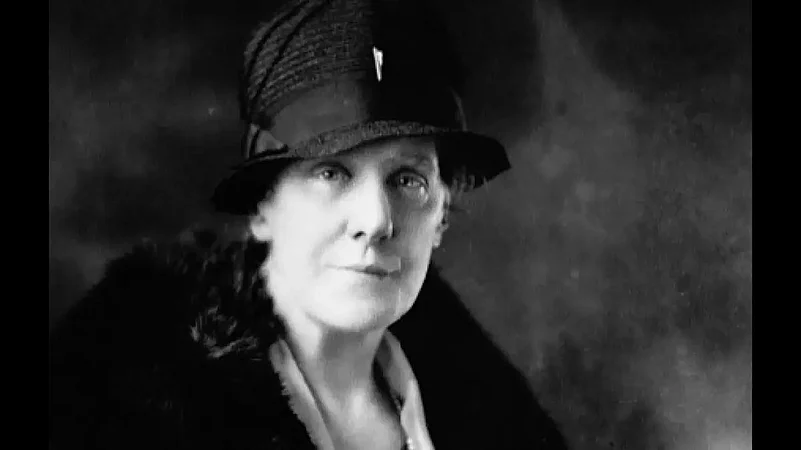It is May 8 and like every year, the world is busy celebrating Mothers’ Day. A special day that became an official occasion in 1914 when the US President Woodrow Wilson declared it a national holiday in the United States, Mothers; Day has been around for longer than that. The first known Mothers’ Day celebration was held on May 12 1907 when Philadelphia-based feminist Anna Jarvis observed a memorial service in memory of her mother, a feminist who was actively involved in organising women’s groups to promote women’s health and solidarity. Today, the day has come to symbolise the contribution of women as mothers in society. It is a tribute to the travails of mothers everywhere across the world. The day is usually celebrated by children and men who treat their mothers and wives to gifts and breakfasts in bed. However, many modern feminists have called out the celebration of ‘Mothers’ Day’ as a hypocritic reinforcement of harmful gender roles. I agree.
Mother’s Day has always been my least favourite of holidays or occasions. Why must there be just one day to celebrate motherhood? While the arguments hold the same for Valentine’s Day, Women’s Day and other such statutory days, the underlying stereotypes propagated by Mothers Day may be a bit more harmful to women as it not only glorifies the singular role of women as mothers but also hides the fact that despite debates and discussions about gender gap and unequal work opportunities for women, women’s labour remains largely unrecognised, unrepresented - and most importantly, unpaid.
Women’s participation in the labour force has been historically less than men. But this does not mean women do not work as much as men. On average, a man spends 97 minutes a day doing unpaid domestic work as compared to 299 minutes on unpaid care work done by women.
Household chores include taking care of children and the elderly, cooking, cleaning, fetching firewood and water and a host of other activities that are only associated with women. In many cultures including India, men doing household chores is even looked down upon. Thus women globally carry two and half times more than the burden of men when it comes to unpaid household work. A direct result of this is their lower participation in the labour force. Women engaged in unpaid work have fewer hours in the day to devote to economic activities, education or skilling. In case they do manage to land a job, they end up working much longer hours, doing both paid and unpaid work.
Take the case of a majority of working mothers in India. Her job is not just limited to the office but starts from daybreak when she has to prep meals for her family and kids and ends well after dinner. According to a UN report on women and employment, “women’s unpaid work subsidizes the cost of care that sustains families, supports economies and often fills in for the lack of social services.”
The problem, however, is that domestic work is often not considered work at all but just part of a woman’s ‘duties’. According to data collected by the UN, the total value of unpaid care and domestic work performed by women is estimated to be between 10 and 39 per cent of GDP. This means if calculated, it may well surpass the value of the manufacturing, commerce, transportation and other important economic sectors.
It isn’t just the sexist attitude of society that perpetuates stereotypical gender roles. The fact that women face the lion’s share of household chores without pay or recognition also points to the larger underlying problem - lack of public expenditure and infrastructure. For instance, supporting women through schemes like mid-day meals, easily available creches and day-care centres, and regular, periodic time use surveys to measure unpaid and domestic labour require strong, forward-thinking policies that include women as stakeholders and contributors.
Governments across the world need to rethink policies managing trade and financial globalisation at both micro and macroeconomic levels. There is a need to alter that world of work in a way that identifies the needs of women and the working poor and create working opprt=unities for the most marginalised sectors of society without burdening them with unpaid work. This means harnessing the contributions of women through policies that offer wider financial and digital inclusion and take into account the gender perspective of work. Policies also need to engender the idea of redistribution of domestic work. A truly inclusive socio-economic environment for women would include ensuring safe spaces for work, flexible working hours, social protection against unemployment, greater digital inclusion, income security schemes and much more. But it also includes a safe and flexible home environment when men or other members of the family equally participate as women in performing domestic chores.
And this cannot be done by policies alone. Expecting women to be champions at home and at work is unrealistic and has harmful repercussions for women’s employment, growth and overall well being. This change in attitude can be brought through a deeper focus on gender education and a greater understanding of the underlying patriarchy that enforces the subjugation of women. Celebrating Mothers’ Day with discount coupons might not be enough.






















